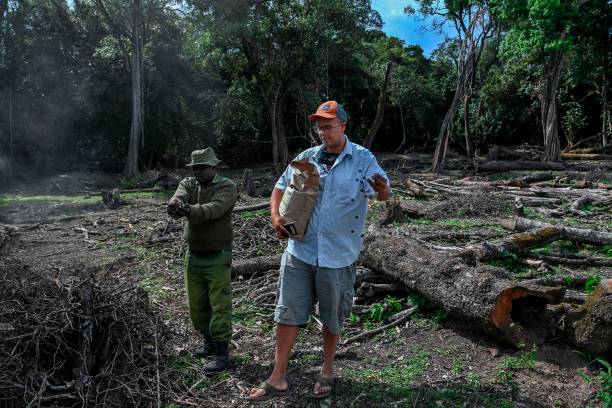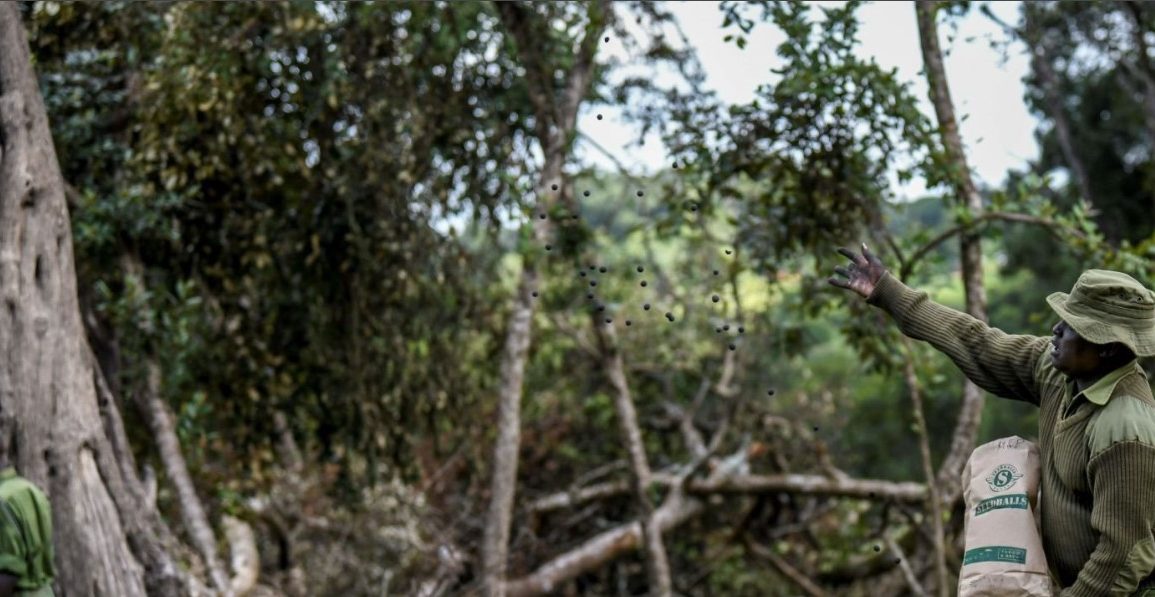Next to the iconic Maasai Mara National Reserve, Nyekweri Forest stands as a vital sanctuary for diverse wildlife, including elephants, rare birds like the Schalow’s turaco, and endangered species such as the giant pangolin.
However, this crucial ecosystem is rapidly vanishing. Once sprawling over 500 km², Nyekweri has lost more than half its area in just 20 years due to deforestation driven by local communities.
A troubling sight greets visitors today, with smoke rising from charcoal pits that scar the landscape.
Despite the illegality of charcoal production in Kenya, enforcement is lax on private lands, and landowners reportedly earn around 200 Kenyan shillings (approximately £1.22) per sack of charcoal.
Following the subdivision of Maasai group ranches, many landowners now clear the forest for settlements, livestock, and agriculture, leading to escalating human-wildlife conflicts.

Tragically, four deaths related to elephant encounters have been reported between November 2023 and May 2024.
Local leaders acknowledge the shortsightedness of recent land decisions, which prioritize immediate gain over long-term conservation.
“Nyekweri was not officially recognized by our government, making it easy to subdivide,” laments a conservancy manager.
The forest’s absence threatens not only the biodiversity it harbors but also the ecological balance of the Mara ecosystem, crucial for flood management and soil health.
Recently, two new conservancies have emerged to halt this decline. Funded by the Basecamp Foundation Kenya and the World Wildlife Fund, they aim to involve local Maasai communities in sustainable land management.
However, without competitive financial incentives, landowners remain reluctant to abandon more lucrative agricultural practices.
The preservation of Nyekweri Forest is essential for maintaining local biodiversity and protecting the cultural heritage of the Maasai.
Urgent action and investment in these new conservancies are needed to create a viable path for conservation and to empower local communities to become stewards of their land.

